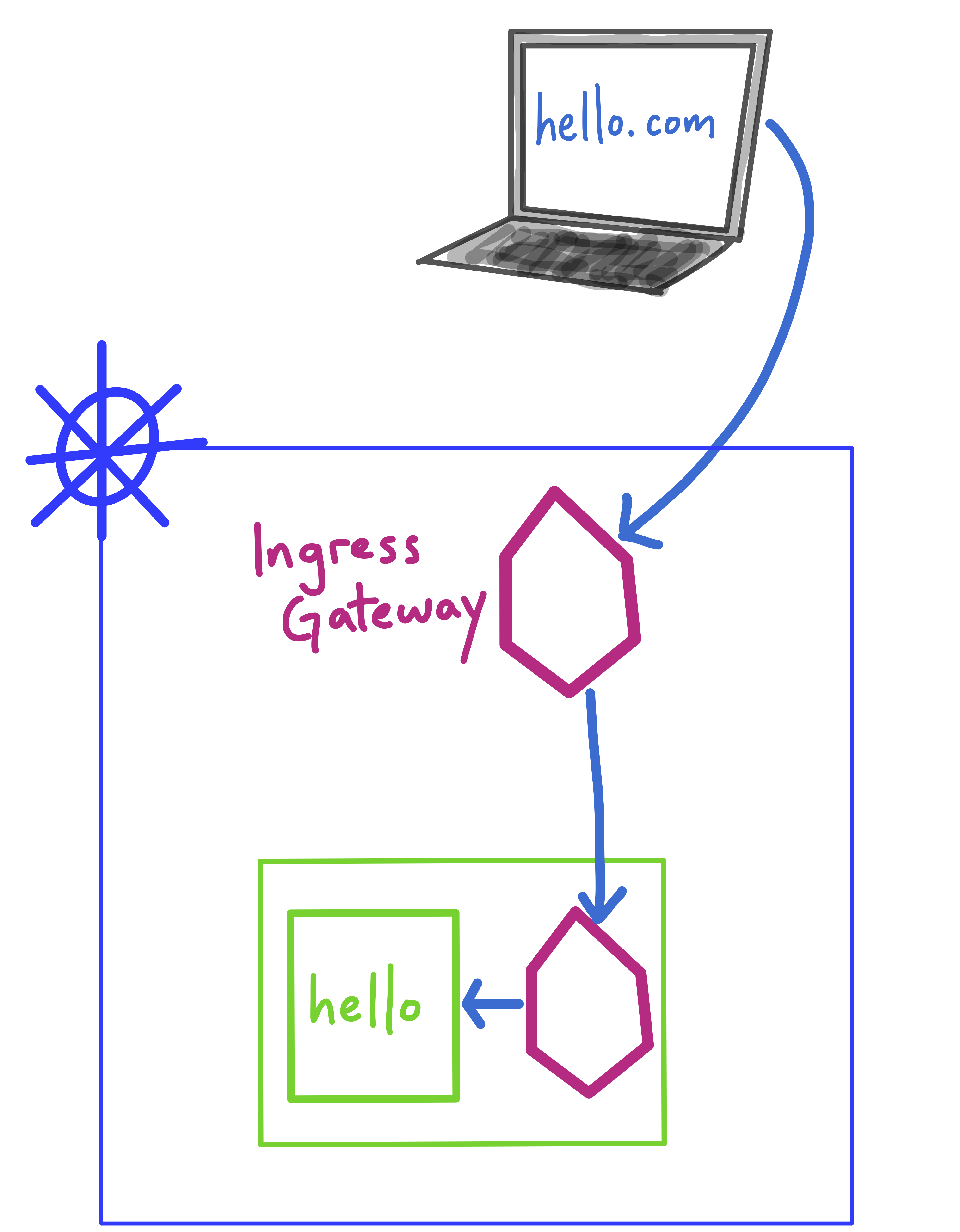Ingress traffic refers to traffic entering the mesh from outside the cluster. Kubernetes provides ways to handle ingress traffic. With Istio, you can instead manage ingress traffic with a Gateway.
A Gateway is a standalone set of Envoy proxies that load-balance inbound traffic. Istio deploys a default IngressGateway with a public IP address, which you can configure to expose applications inside your service mesh to the Internet.
Istio Gateways have two key advantages over traditional Kubernetes Ingress. Because a Gateway is another Envoy proxy, you can use Istio to configure Gateway traffic in the same way you would configure east-west traffic between services (traffic splitting, redirects, retry logic).
Gateways also forward metrics (request rate, error rate) just like sidecar proxies, allowing you to view Ingress traffic in a service graph, and set fine-grained SLOs on frontend services directly serving clients.
Let’s see Gateways in action.
Here, the hello application runs in a container, inside a Pod. The Pod has an injected Istio sidecar proxy container. A Kubernetes Service called hello fronts this Pod. We want to direct inbound traffic from hello.com to the hello Service.
First we need a Gateway resource, which opens port 80 in the default Istio IngressGateway, for all hosts resolving from the hello.com domain.
apiVersion: networking.istio.io/v1alpha3
kind: Gateway
metadata:
name: hello-gateway
spec:
selector:
istio: ingressgateway # use the default IngressGateway
servers:
- port:
number: 80
name: http
protocol: HTTP
hosts:
- "hello.com"
(Note: on your own, you’ll still have to resolve the DNS for that host to the Istio IngressGateway external IP address.)
Second, we need a VirtualService to direct traffic from the IngressGateway to the hello backend Service, running in the default namespace on port 80.
apiVersion: networking.istio.io/v1alpha3
kind: VirtualService
metadata:
name: frontend-ingress
spec:
hosts:
- "hello.com"
gateways:
- hello-gateway
http:
- route:
- destination:
host: hello.default.svc.cluster.local
port:
number: 80

